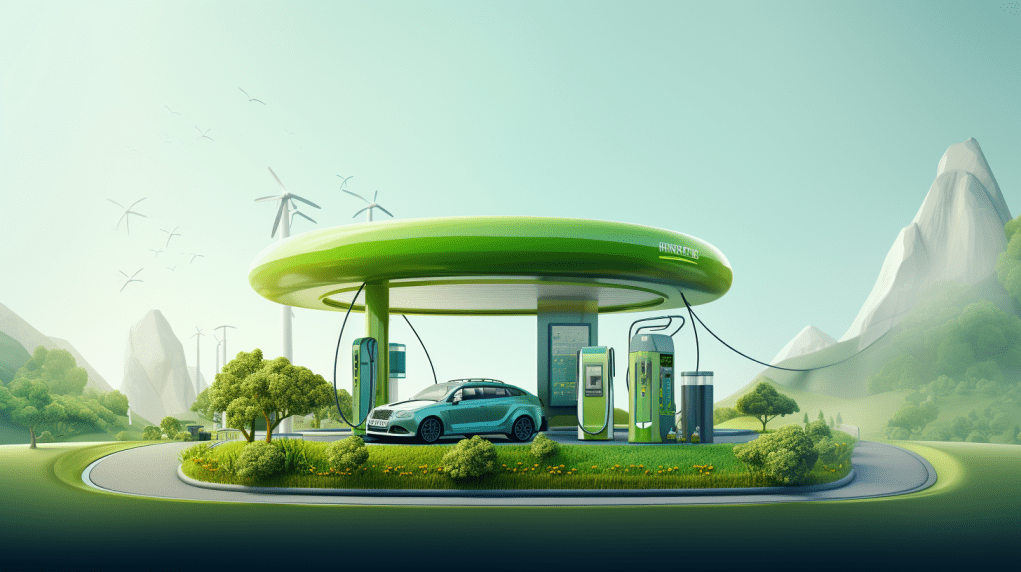Photo was created by Webthat using MidJourney
The Urgent Need for Change
Petroleum vehicles, reliant on non-renewable energy sources, have been major contributors to carbon dioxide emissions, exacerbating climate change and global warming. The UK Government’s ambitious 2050 net-zero emissions target demands a radical transformation of the transportation sector. As a significant step, the government has accelerated its ban on the sale of new petrol and diesel vehicles, effective from 2030, signaling a paradigm shift towards sustainability.
Decarbonizing the Transport Sector
With the impending ban on petrol vehicles, the UK’s transport sector faces a pressing challenge of decarbonization. This imperative shift calls for innovative solutions to promote cleaner and greener alternatives for a sustainable future. As traditional combustion engines phase out, electric vehicles (EVs) and other low-carbon technologies are set to dominate the market, reducing harmful emissions and paving the way for a cleaner transportation landscape.
Impact on Carbon Dioxide Emissions
Petroleum vehicles, along with their diesel counterparts, have long been primary sources of carbon dioxide emissions in the UK. The majority of these emissions stem from road transport, particularly passenger vehicles, responsible for nearly 90% of the country’s carbon dioxide output. By eliminating the sale of new petrol cars, the UK aims to significantly curtail these emissions and make substantial progress toward its carbon reduction goals.
Beyond Carbon Dioxide: Additional Greenhouse Gases
The adverse environmental impact of petrol cars extends beyond carbon dioxide emissions. Petrol vehicle exhaust also contains methane and nitrous oxide, two potent greenhouse gases with higher heat-trapping abilities than carbon dioxide. The collective effect of these emissions underscores the urgent need to transition away from petrol vehicles to mitigate their adverse effects on the climate.
Embracing Electric Mobility
Electric vehicles (EVs) present a promising solution to combat the detrimental effects of petrol cars on the environment. EVs produce zero tailpipe emissions, thus reducing not only carbon dioxide but also other harmful greenhouse gases. The growing infrastructure for EV charging and advancements in battery technology have made electric mobility an increasingly feasible and sustainable choice for the future.
The Road to a Sustainable Future
The ban on new petrol cars marks a pivotal moment in the UK’s efforts to address climate change and achieve a greener, sustainable future. With a renewed focus on electric mobility and low-carbon alternatives, the transportation sector can play a crucial role in the nation’s journey towards achieving net-zero emissions by 2050. As individuals, industries, and policymakers unite in their commitment to a cleaner environment, the phase-out of petrol cars will pave the way for a more sustainable and environmentally conscious era.


